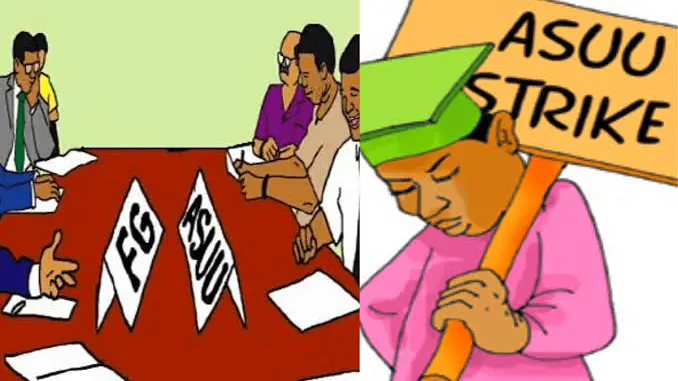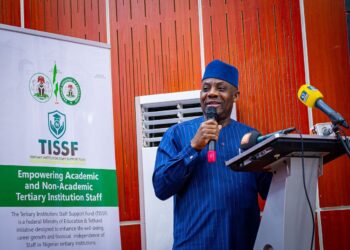The Academic Staff Union of Universities has called off its two-week warning strike following fresh assurances from the Federal Government to resolve outstanding grievances affecting university lecturers nationwide.
Professor Chris Piwuna, ASUU’s National President, announced the suspension during a press briefing in Abuja on Wednesday morning, October 22, after the union’s National Executive Council concluded marathon deliberations that extended into the early hours.
The industrial action, which commenced on October 13 and was scheduled to end on Monday, October 27, has been terminated with immediate effect. However, Piwuna issued a stern warning that the union would resume the strike if the government fails to fulfill its commitments within the next month.
“NEC resolved that the warning strike is hereby suspended with immediate effect. Should the government fail to address the issues within one month, ASUU reserves the right to return to its initial decision,” the ASUU president stated.
The warning strike was triggered after a previous 14-day ultimatum to the government expired without satisfactory resolution. ASUU had accused federal authorities of displaying “persistent neglect and insincerity” in implementing provisions of the 2009 FGN/ASUU Agreement.
Among the critical issues demanding attention are outstanding salary payments that were withheld during previous strikes, arrears from delayed promotions, and earned academic allowances owed to lecturers across public universities. The union also seeks the release of third-party deductions and the provision of revitalization funds meant to upgrade decaying university infrastructure and facilities.
Piwuna credited the Senate’s intervention as instrumental in facilitating dialogue that led to the strike suspension. He suggested that the warning strike could have been entirely avoided had the government approached negotiations with sincerity from the beginning.
“There would have been no warning strike at all if the government had been sincere with the negotiation from the onset,” he remarked, expressing appreciation for the legislative chamber’s mediation efforts.
The suspension brings temporary relief to students and parents who had braced for potential disruption to the academic calendar. Nigerian universities have experienced repeated shutdowns over the years due to unresolved disputes between ASUU and successive administrations.
The one-month window now places pressure on the Federal Government to demonstrate concrete action on the union’s demands or risk a return to industrial action that could escalate into a prolonged nationwide strike affecting millions of university students.
ASUU’s history of strike actions has frequently resulted in extended academic disruptions, with some strikes lasting several months and causing significant delays to university programs across the country. The union maintains that these actions remain necessary to defend the quality of public tertiary education and the welfare of academic staff.



















